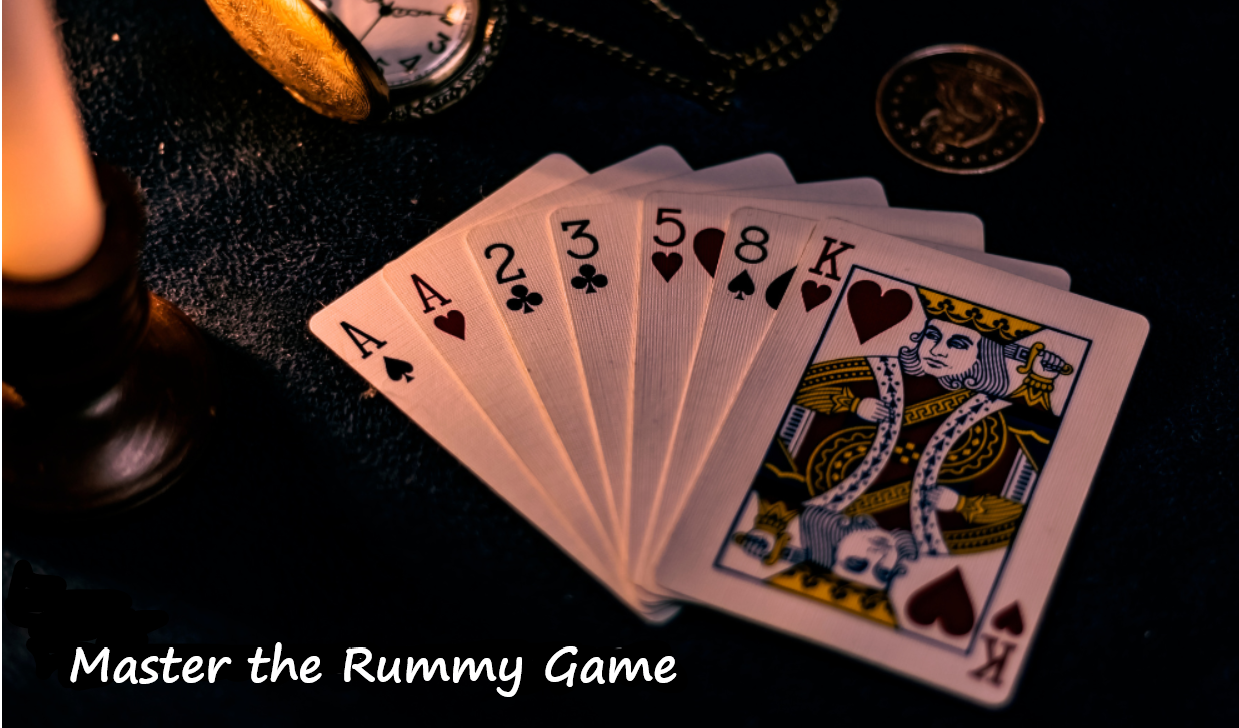
Master the Rummy Game, Skill Strategy: Expert Advice to Move Ahead
As much as it has popularly captured millions, Rummy is as much of a skillful game. Luck or chance has often captured millions in games that offer Rummy as much as their forte; there is ample evidence for making this assessment right. The game’s intricacies, regardless of how seasoned you are as a player, will start revealing themselves to you, and you can get the strategies and become rich with it. This article gives you professional guidance on how to be on top when playing the game of rummy and develops your skills to make you a tough competitor to beat.
Knowing the Basics of Rummy
The basic rules and structure need to be known before jumping into all the advanced strategies. Rummy is played on a standard deck of 52 cards. It is designed to make valid sets and sequences from your cards. A sequence is three or more continuous cards of the same suit, while a set is either three or four cards of the same rank but different suits.
The game of rummy begins with the dealing of cards to the players, and the rest are kept face down in the middle as the stock. The players draw cards from either the stock or the discard pile, trying to make sets and sequences. When a player has formed a valid combination of sets and sequences with no melded cards left in their hand, they declare it.
Playing good rummy definitely requires a basic understanding of the game rules. However, to really outsmart your competitors, you have to highlight a strategy that amalgamates observation with skills building.
Expert Tips to Outperform in Rummy
1. Form sequences as early as possible.
Forming Sequences: As in order to declare and win rummy games, sequences are necessary. Sequences start to form from the earliest accessible to be formed in initial playings of the game. Before time, form a pure sequence to play. A pure sequence must by necessity be announced, for anything other than sets or other sequences in their might will not be granted. You declare the game if only and only you do not possess a pure sequence with your sequences.
In this way you will have chances to complete the game even more since you would have created a pure sequence much earlier. Now you are left free to focus on making more sets and sequences.
2. Use Jokers Prudently
Jokers are the most important cards in rummy. They can replace any card in a set or sequence and make it easier to complete combinations. But the devil lies in the details. Just don’t waste them by forming simple sets or sequences. Save them for completing complex combinations that would otherwise be difficult to do.
This should be remembered: a joker itself is a bluffer and also can play to cheat; sometimes dropping cards that look useful can actually create temptation for the opponents of dropping a card that will complete a sequence with what is in your hand.
3. Pay attention to others.
Another area people generally tend to pay less attention to while playing rummy is keeping an eye on their opponents. To be extremely alert about the cards that your opponents discard because this would reveal their hand. For example, if someone discards a specific card, it may mean they no longer require it, or perhaps they are working on a set or sequence that does not include that card.
Observe the opponents and note down what you observe them needing, so they do not get rid of the cards. This way you reduce their chances of getting any other set or sequence.
4. Discard in Strategy
Getting rid of cards is a basic action; however, it is more critical to your game. Always make the strategy behind discarding drop cards that are least likely to help your hand while noting what you leave behind. Make sure to throw out cards likely to help other people.
When you play with a joker, make sure to discard with utmost care, as it can complete an opponent’s set or sequence if he has it. Discarding the card that can complete an opponent’s sequence or set may give him an upper hand.
5. Avoid Holding Cards of High Value
It is bad to have many high-value cards like 10s, Jacks, Queens, Kings, and Aces since holding them for too long may leave you in danger of receiving very large points from your opponent before you. In the last stages of the game, you may be left with many high-value cards, which may cost you a number of points.
Discard high-value cards if they cannot be constructed into any sequences and sets. Normally, they are better to be discarded early, before a chance loss, so that one can have some points. There is often a thumb rule: getting rid of high-value cards as soon as possible if they do not help you form proper combinations.
6 Dropping or Declaring
In rummy, a player can either drop at initial stages or declare once some valid sets and sequences are formed. The right time for dropping or declaring is important while taking the lead in the game.
- Dropping: If you get a bad deal or you feel that winning is going out of the cards, then you can opt to drop early. Dropping early will cost you fewer points than losing the game but, at the same time, would deprive you of the opportunity to win that round. Strategic dropping can save you points when the hand would otherwise seem unplayable.
- Declare: As you feel you have a true mix of cards, declare it’s the sure shot to the end. But this comes after you have made some pure sequence; otherwise, your other sets and sequences in your hand. Declare too early without a complete hand and lose on some points.
7. Flow with the Progression of Game
Rummy is one game that may change really quickly. A good hand could be rendered unplayable with the turn of a hand and vice versa. Adaptability will help here. One needs to change tactics once it is found not to be working. The person’s flexibility with the different combinations of cards must continue keeping watch for opportunities to fill a sequence or set.
For instance, you have all the cards to form a sequence except the key card. Now be proactive about searching for that card in the stock or the trash piles. In case you need to change direction for playing the game, don’t forget.
8. Learn Endgame Strategies
The last stage of rummy is called the endgame. It demands strategies to win at this stage. When the game is almost nearing its end, get rid of cards that are not melded and complete combinations to avoid as many points as possible. Observe the remaining cards in the deck and calculate the possibilities of drawing the cards needed.
Bluffing is an endgame technique. If you have passed the declaration point, you can throw away cards that may tell opponents you are stronger than you actually are. This may provoke them into committing blunders at critical moments and let you win.
9. Practice and Patience
Finally, one should practice continuously and patiently with improvements in his game. The more frequently he plays, the better he will read the patterns and also understand how his opponents function or make decisions on time. Do not get discouraged if one faces a few setbacks; instead, take them as learning experiences to better your strategy.
Conclusion
It is strategic planning, sharp observations, and quick decisions that bring a person ahead in this game of rummy. This will ensure that there is a better winning chance if a person remains keen on making sequences early, using jokers smartly, observing the moves of opponents, and making smart discards. Remember that the two major keys here are patience and adaptability. The more you play, the better skilled you’ll get at this exciting game of skill.
The next time you sit at the rummy table, apply these expert tips and run rings around your opponents—and enjoy the thrill of the game!

